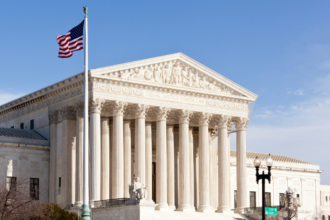Facebook and Instagram owner Meta is scheduled to present face recognition technology to fight scammers using photographs of celebrities in online advertising. Prominent people like Elon Musk and personal finance guru Martin Lewis have fallen prey to such frauds, which frequently support questionable investment ideas, including cryptocurrencies.
What Is the Growing Problem of Celebrity Scams?
Targeted repeatedly by these frauds, Martin Lewis explained the emotional toll these crimes have placed on him. He said:
“Every day, my name and face are utilized in fraudulent schemes, and I get innumerable reports. It makes me ill and helpless.
Usually utilizing the legitimacy of well-known personalities to make the frauds look real, these bogus adverts entice gullible people into investing in nonexistent plans.
How Will Meta's AI-Powered Solution Work?
Meta now uses artificial intelligence (AI)- driven ad evaluation systems to find bogus celebrity sponsorships. The corporation is also advancing by including facial recognition technology.
This new method will compare pictures from highlighted adverts with official Facebook or Instagram profile pics of celebrities. Should the technology verify a match and the ad turned out to be a hoax, the ad will be automatically deleted. Early trials of this technique have produced “promising results,” Meta said.
Meta intends to expand the usage of this instrument to a broader spectrum of public personalities who have been victims of what is now being called “celeb bait.”
What Is the History of This Issue for Meta?
For Meta, particularly in the 2010s, the topic of bogus celebrity sponsorships has been recurring. The issue drove Martin Lewis to file legal challenges against Facebook at its height. Lewis finally dropped the matter, but the internet behemoth agreed to provide a tool letting consumers report direct fraud adverts. Facebook also promised £3 million to Citizens Advice to fight fraud.
But as frauds have changed, they have grown more clever and persuasive. Many today use deepfake technology, which employs realistic computer-generated photos and videos to give the impression that celebrities promote goods or services. These technical developments have made it much more challenging for Meta’s current technologies to spot and stop bogus adverts.
How Is Meta Responding to Pressure Over Deepfake Technology?
Meta has been under more pressure to combat these scams driven by deepfake technology. One very concerning event involved the creation of a phony interview meant to fool consumers into divulging their financial information using UK Chancellor Rachel Reeves.
Martin Lewis has been vocal about the increasing danger these commercials pose, and lately, he has advised the government to tighten rules. In a statement, he demanded increased authority for the UK’s communications regulator, Ofcom, to assist in eradicating these dishonest behaviors.
“Scammers are relentless and constantly change their strategies to avoid discovery,” Meta said. “We hope that by sharing our method, we can help guide industry defenses against online scammers.”
How Will Facial Recognition Help with Account Recovery?
Apart from its campaign against misleading advertisements, Meta has also revealed intentions to help individuals locked out of their social media accounts using facial recognition technology. Right now, users of a closed Instagram or Facebook account must upload proper identification paperwork for access. Meta is exploring a new technique to expedite the authentication process, including video selfies and face recognition.
To verify their identity, this technology will compare the user’s video selfie with the profile photo of their account. If the system finds a match, account access will be restored much faster.
What Are the Privacy Concerns Around Facial Recognition?
This kind of facial recognition technology deployment has sparked privacy issues once more. Previously, Facebook stopped using face recognition in 2021 despite criticism over privacy concerns, accuracy, and technology prejudice. Meta has assured consumers, meanwhile, that video selfies shot during the account recovery procedure would be encrypted and kept safely.
“Any facial data generated for comparison will be deleted immediately after the check; these video selfies won’t be displayed publicly,” Meta said.
Regulatory limits will, however, initially prevent the facial recognition system from being accessible in some areas, including the European Union and the UK.
What Does This Mean for the Future?
Meta’s new policies might be a significant turning point in the fight against online fraud as frauds become more sophisticated and technology develops. Meta wants to lessen the effect of celebrity scam ads by including facial recognition technology and improving its AI-based ad review system, thereby providing consumers with faster, safer means of account recovery.
The business said, “Scammers will keep innovating; but, so will we. We want to keep one step ahead to guard public personalities from being taken advantage of and protect users.”








